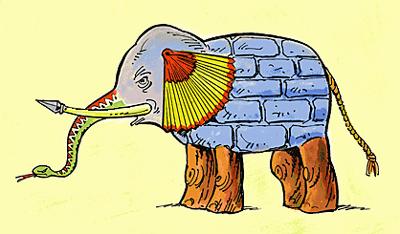Background Passages: Psalm 107:23-30; 2 Corinthians 8:8-9; 16-17
I don’t know if you caught the YouTube video recently of cruise ship passengers riding out a storm in the North Atlantic where 30-40 foot waves regularly crashed against the window of their cabin. It’s one of those unnerving images of pending disaster that haunts a lot of travelers whether they travel by sea or by air. I’ve never cruised in waters that rough, but, in almost every port, I remember the gratifying feeling of being docked securely in the harbor. It’s a feeling similar to when your plane lands safety at its destination. Being back on solid ground offers great comfort.
As we arrived in that safe harbor on our last cruise, I watched from the deck of the ship as the captain used his starboard thrusters to ease the vessel toward the pier. He stopped the thrusters, leaving the ship 30 feet from the dock. The crew scurried to moor the ship by sending hawsers—thick ropes three inches in diameter–across the void from the ship to the bollards on shore. I remember thinking how hard it would be to toss the heavy ropes that distance to the pier.
Instead, the crew attached a 60-foot, thin rope to a rope ball about six inches in diameter, tying the ball to the hawser. They swung the ball around on the end of the rope like David’s slingshot and sent it flying across the emptiness between the ship and pier, carrying the thin line behind it. The workers on the dock picked it up, pulled the rope across the water, eventually dragging the hawser with it. They tightened the hawser, drawing and securing the ship close enough to the pier for passengers to disembark. It was a slick operation that allowed us once again to step upon firm ground.
I’m told the thick ball at the end of the thin rope was called a “monkey fist.” In the maritime world, the monkey fist, which dates back to the early 17th century, is a specialized knot wrapped around a stone, an iron ball or other heavy weight to make it easier to toss the heavy hawser onto the dock.
It’s this monkey fist that stirred my thoughts today.
Over the past several weeks, several friends and family members have found themselves at sea, struggling in the midst of life’s storms, most of which are not of their making. These difficulties, like waves on the ocean, crash against our lives threatening to sink even the strongest among us into depression and despair.
The psalmist used the poetic language of ancient mariners to indicate the difficulties we sometimes face.
“They mounted up to the heavens and went down to the depths;
In their peril their courage melted away.
They reeled and staggered like drunkards;
They were at wits end.”
Yet, the psalmist knew that God provided a safe harbor for those who trust him and call upon his name.
“Then they cried out to the Lord in their trouble,
And he brought them out of their distress.
He stilled the storm to a whisper;
The waves of the sea were hushed.
They were glad when it grew calm,
And he guided them to their desired harbor.”
There is good news for those of us who commit our lives to Christ and know how precious it is to have him as our safe harbor. When the storms of life batter us, we know we can tie ourselves securely to him, confident that once we wrap our hawser around his bollard, nothing will separate us from his safe keeping. We know within the trouble and distress, he can calm the storm to a hushed whisper.
I have been in that position. The difficulty comes when my strength fails. When my courage melts away. When I am at my wits end. I can’t draw close enough to the Father on my own to toss him my mooring line. My burden too heavy. The distance between me and the Father too great. The line itself much too short.
In times like that, I need someone to hurl the monkey fist. Someone to make it easier to drag my hawser to the dock and tie it off to the bollard, safe within the arms of God’s love, care and protection. Invariably, I find a pastor, a spouse, a friend, and at times, a stranger, willing to tie all things together through word or deed that allows me to reconnect with God in the way I need it most.
We will all need that connection from time to time. Paul knew what it meant to find comfort in Christ. He wrote in 2 Corinthians 8:8-9, 16-17:
“We are pressed on every side, yet not crushed; perplexed, but not in despair; persecuted, but not abandoned; struck down, but not destroyed…Therefore, we do not lose heart. Though outwardly we are wasting away, yet inwardly we are being renewed day by day. For our light and momentary troubles are achieving for us an eternal glory that far outweighs them all.”
When our batteries need recharging or when we need time out of the wind and wave to gather ourselves again for ministry and service, it’s comforting to know that we have a haven in Christ. I am grateful in my life for those who gripped and tossed the monkey fist on my behalf when the safe harbor seemed so far away.
This week many individuals will cross our path with lives torn apart by broken relationships, lost jobs, illness, injury and death. Those who struggle to make ends meet. Those with little hope for the future. Their seas are high and frightening.
We must look for opportunities to toss the monkey fist for those in need of the peace and comfort that only God can provide. May we be the ones that draw their storm-tossed vessel to the safety of the harbor and allow them to set their feet again on solid ground.

